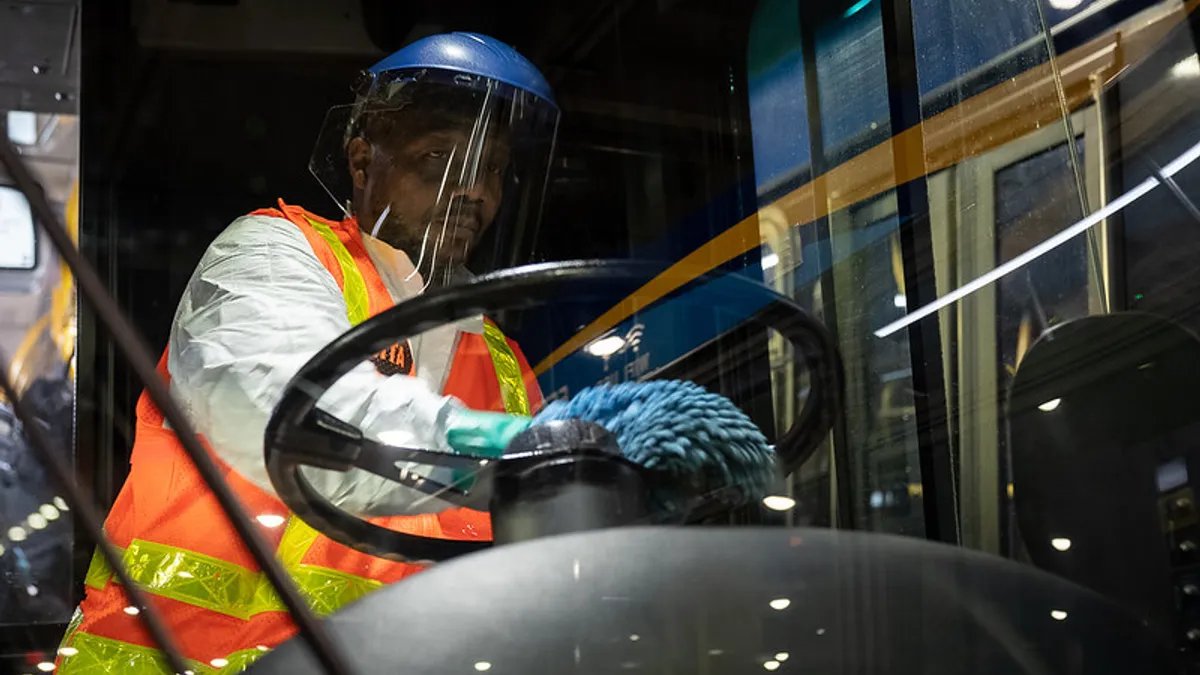Dive Brief:
- A little more than half (52%) of employees responding to a recent survey said employers should require workers to receive a coronavirus vaccine; slightly more (57%) of the 1,006 respondents said they were in favor of incentives, according to the Feb. 23 results from Eagle Hill Consulting.
- The support for vaccine mandates is up from December, when only 49% of respondents said they liked the idea of such measures. Similarly, there is growing support for employers to continue requiring and encouraging masks, social distancing, COVID-19 testing and temperature checks at work, Eagle Hill noted.
- "All of this means employers must engage with employees at a deep level to understand their views and align decisions with employee preference," said Melissa Jezior, the company’s president and CEO, in a statement announcing the findings. "There will not be a one-size fits all approach, and it isn’t enough to just announce plans. Employers have to find the balance between ensuring a safe environment while not imposing requirements that will generate employee anxiety or animosity."
Dive Insight:
As coronavirus vaccine rollouts remain in their early stages, few employers have opted to require that workers receive a vaccine, and at least one that did so — a New York City restaurant — faced public backlash when it reportedly fired a server who refused.
Others have chosen to incentivize vaccination. Chobani, for example, gave workers up to six hours’ paid time off to receive the vaccine. Target took a similar approach, also adding in Lyft rides to and from appointments. Kroger, on the other hand, offered a $100 cash payment.
Encouragement may be the safest approach from a compliance perspective, management-side attorneys previously told HR Dive, citing concerns about, among other laws, the Americans with Disabilities Act.
The U.S. Equal Employment Opportunity Commission has made clear that an employer can require proof of vaccination, but federal laws likely will require some exceptions. Questions remain around incentives, too. The Society for Human Resource Management, the U.S. Chamber of Commerce and others in a Feb. 1 letter called on the commission to clarify "the extent to which employers may offer employees incentives to vaccinate."
Beyond vaccine plans, employers may need to take steps to ensure worker safety and address employee preferences and concerns, as Jezior noted. HR should truly listen to what employees have to say, attorneys previously told HR Dive, and should over communicate when it comes to workplace safety measures.
















